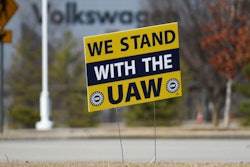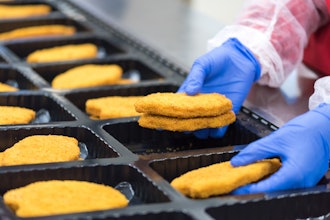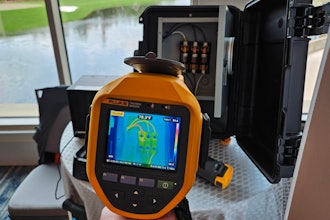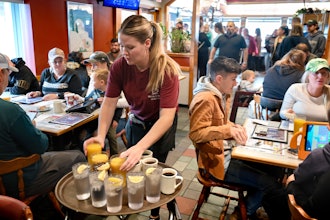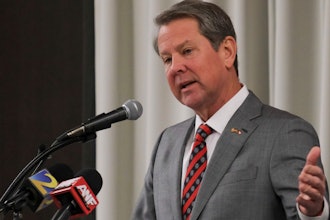DENVER (AP) -- Tensions have flared between Somali workers and officials at a Colorado meatpacking plant over when employees can break for prayer during the Muslim observance of Ramadan.
Religious discord between U.S. factories and Muslim workers is nothing new, but a spokesman for the D.C.-based Council on American-Islamic Relations said he's never seen a conflict escalate to the point it has at the JBS Swift & Co. meatpacking plant in Greeley.
"Usually in these cases we're able to come to an amicable solution," CAIR spokesman Ibrahim Hooper said Thursday.
The conflict in Greeley began Sept. 5, when about 220 workers, according to Swift estimates, walked out during the evening shift, blaming the company's refusal to allow their breaks to coincide with sunset so they could pray.
Hooper said the timing of the sunset prayer for Muslims is the only one of the five daily prayers that can't be changed.
"You can't really say, 'Well I'll delay it for an hour and do it then.' You have a very narrow window of opportunity," Hooper said. During the holy Muslim month of Ramadan, workers can't eat or drink until that prayer, he said.
Swift spokeswoman Tamara Smid said 101 workers were fired, but United Food and Commercial Workers Local 7 spokesman Manny Gonzales said the number was as high as 150, based on what workers told union officials.
Gonzales said the union plans to file grievances against the company on behalf of those workers. But some of the workers have already begun looking for jobs at the Cargill Meat Solutions plant in Fort Morgan, about 55 miles east of Greeley, according to the Colorado State Refugee Services Program.
Hooper said CAIR attorneys in Chicago are now involved as mediators, and may pursue legal action if religious accommodations are denied. But they're hoping it doesn't get to that point.
"Really, you don't need attorneys in these cases," Hooper said. "You just need a spirit of good will and cooperation."
Smid said Swift had changed the timing of workers' lunch schedules by more than an hour to accommodate them. She said the assembly line usually breaks at 9 p.m., and that schedule was changed to 8 p.m.
She said workers who were suspended for walking out of work on Sept. 5 were told that if they didn't return to work on Wednesday they would be fired.
One of the workers who was fired, Graen Isse, 27, said the 8 p.m. lunch "would be way too late." He said workers who still have jobs are banding together to help the people who were fired if they need money to pay rent.
The Greeley plant was where 270 Hispanic employees were detained after a raid by Immigration and Customs Enforcement officers in 2006. Paul Stein, coordinator for the Colorado State Refugee Services Program, said the raid created a vacuum filled by Somali refugees. Stein said about 400 people from the war-torn country either live or work in Greeley, and 250 more are in Fort Morgan.
Swift, which was purchased by Brazil's JBS SA in March, has had problems with Muslim workers in the past. At a Swift plant in Grand Island, Neb., dozens of workers from Somalia quit their jobs last year because they said they weren't allowed to pray at sunset. They eventually returned to work.
This month, officials at the Tyson Foods Plant in Shelbyville, Tenn., reached a compromise with union workers to observe Eid al-Fitr as a paid holiday. The day, which falls on Oct. 1 this year, marks the end of Ramadan.
The firings in Colorado came on the same day as St. Cloud, Minn.-based Gold'n Plump Poultry Inc. agreed to let Muslim workers take short prayer breaks under a settlement mediated by the U.S. Equal Employment Opportunity Commission.
"With any new ethnic or religious groups, there is an adjustment period as the group becomes part of the American social fabric," Hooper said.




